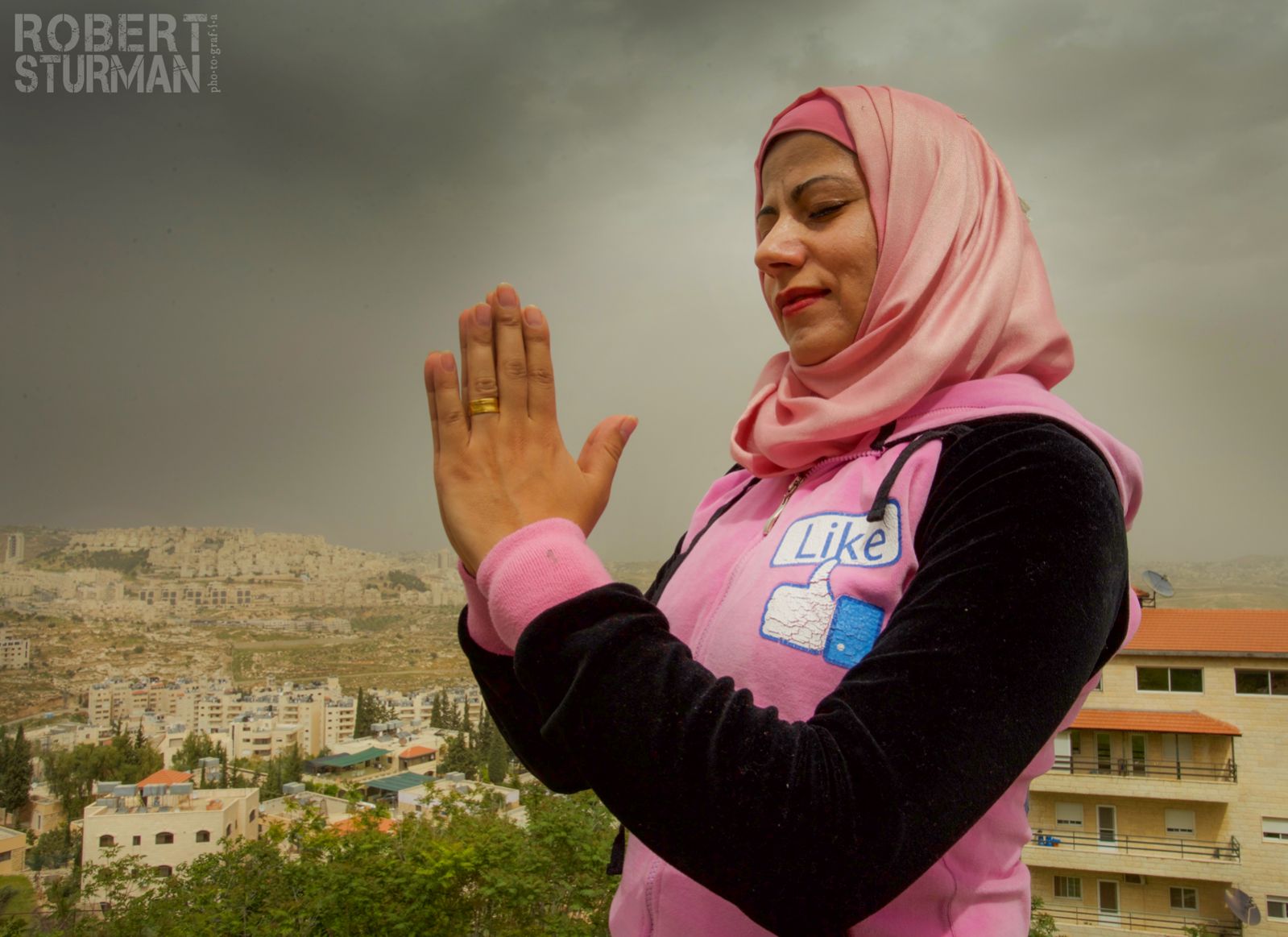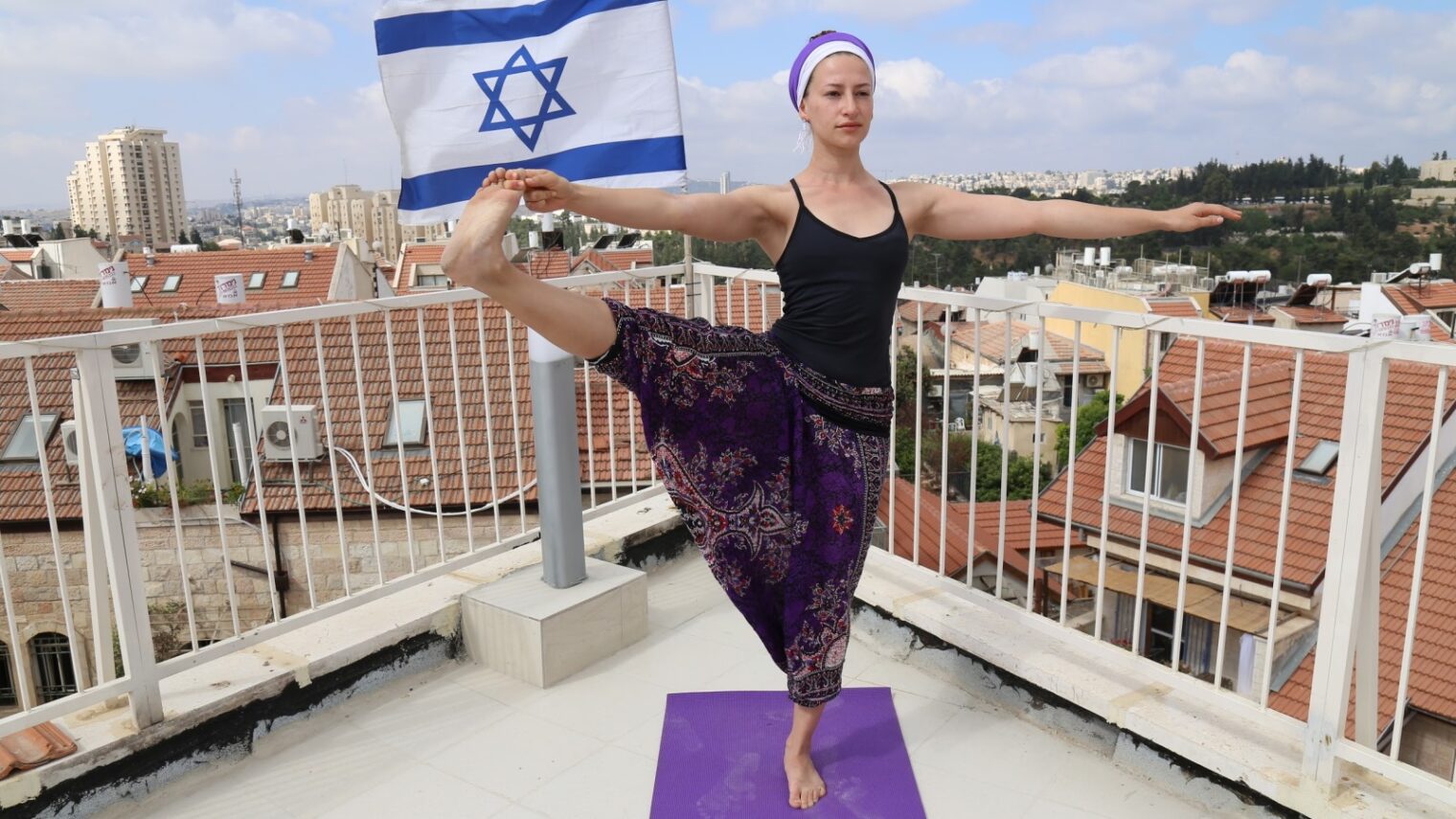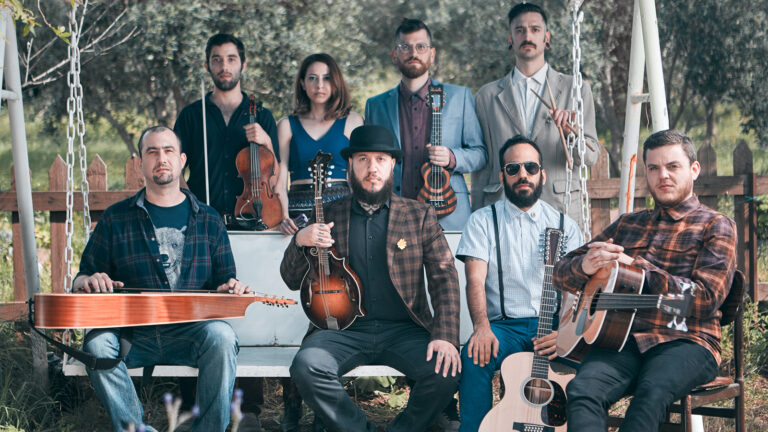Today’s Israeli kindergartners know the downward dog and the sun salutation poses just as well as they know their nursery rhymes.
Preschool yoga, prenatal yoga, workplace yoga, yoga for soldiers… yoga in its many forms has found its way into virtually every area of Israeli life. Even government ministries and the Jerusalem prosecutor’s office offer weekly yoga sessions to workers.
While those familiar with the fast-paced, tough image of the Sabra might have a hard time visualizing the average Israeli enjoying yoga or meditation, these practices have received a warm welcome amongst Israelis, who deal with stressful and often chaotic realities.
There’s a three-day Yoga Arava festival every September, and yoga classes year-round in Israeli cities and in desert retreats such as Ashram BaMidbar.
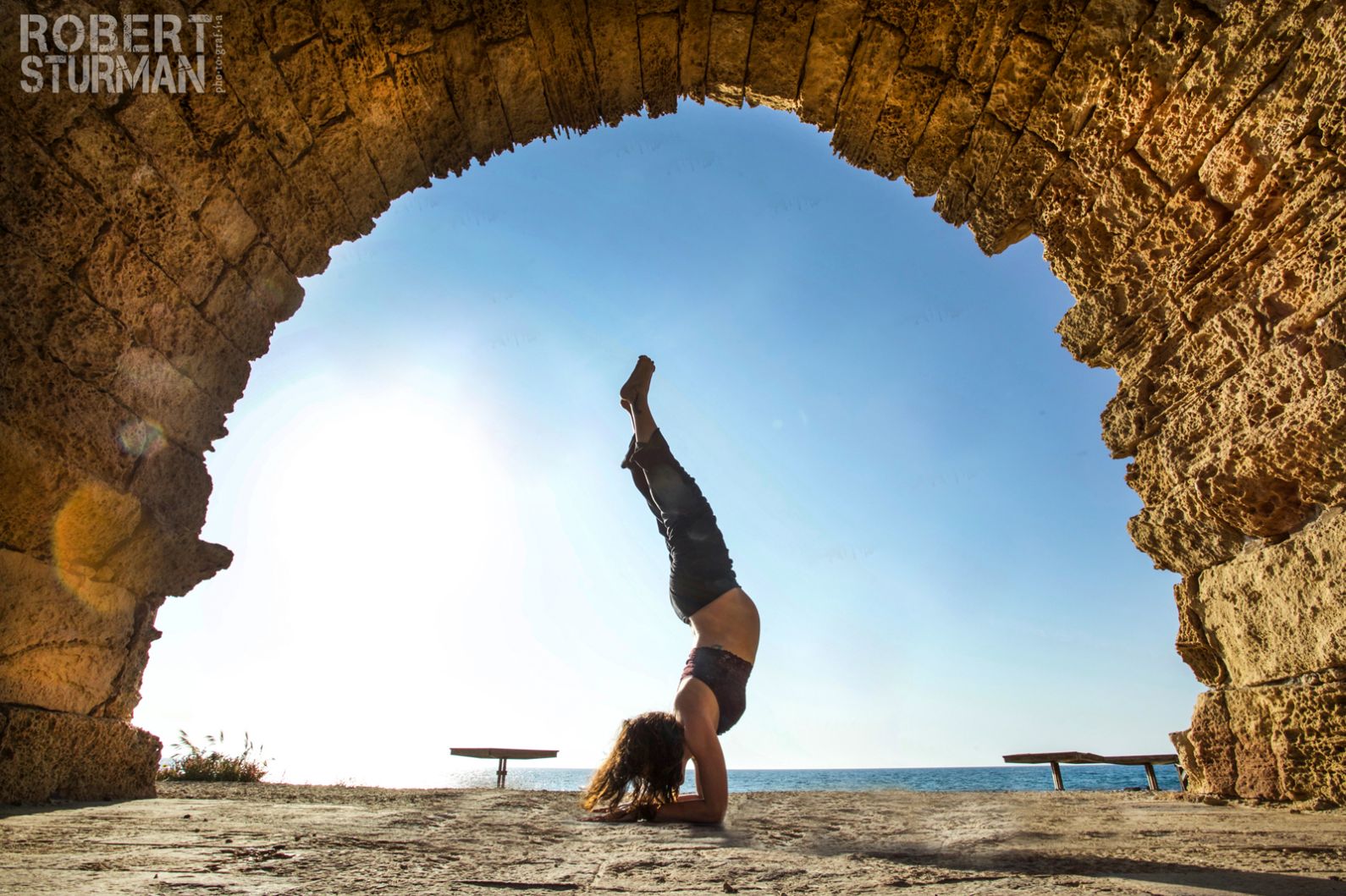
Most classes are instructed in Hebrew, English and Sanskrit, so visitors – including those on the newly inaugurated Birthright Yoga and Mindfulness trip — can easily partake in the Israeli yoga environment.
Styles span the dynamic and therapeutic traditions, including Ashtanga, Iyengar, Kundalini, Vinyasa and more.
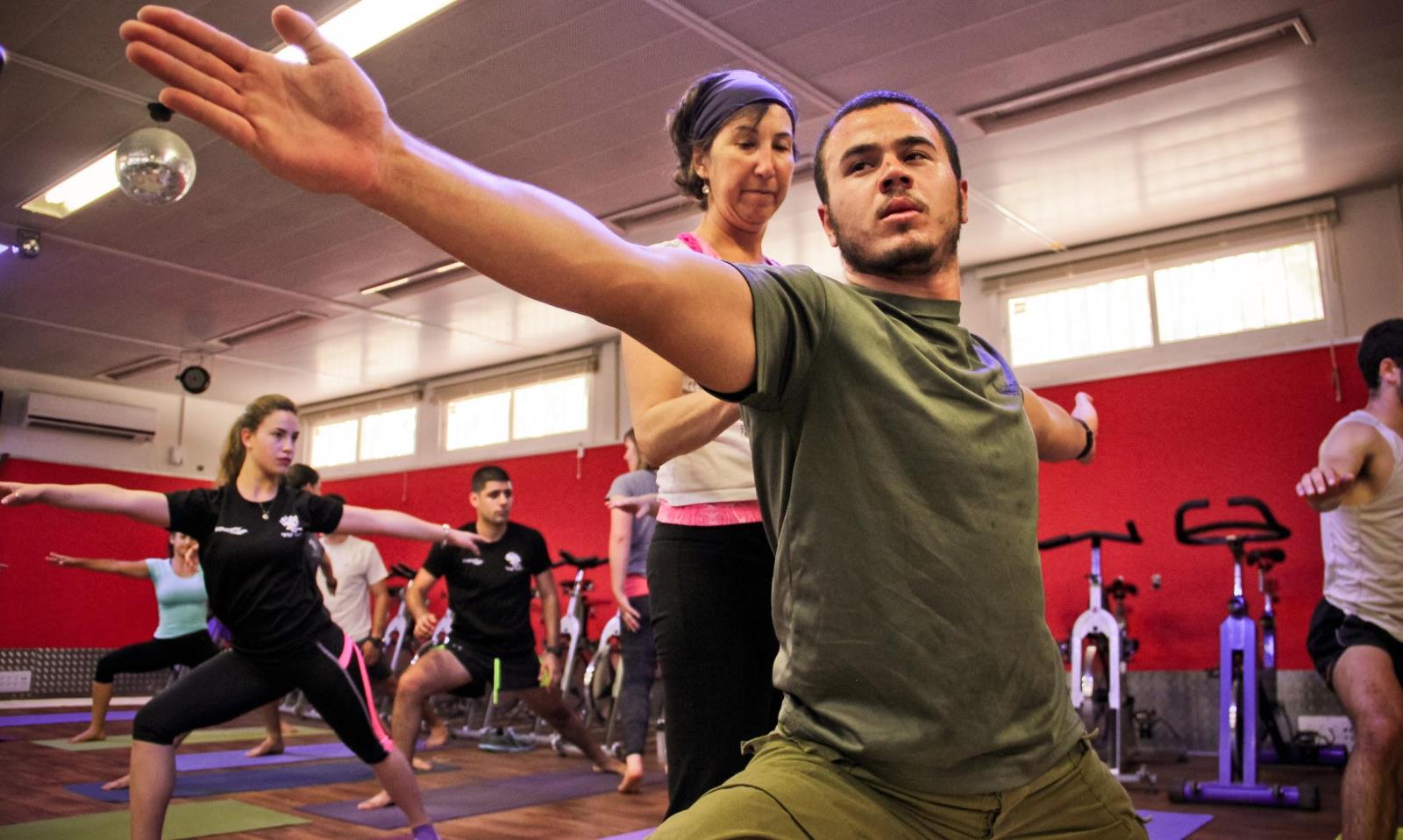
“The two most popular styles of yoga in Israel seem to be Ashtanga and Iyengar, which are very regimented and even militaristic without much room for modification,” says Ingrid Aria of the Yoga HomeSchool. “I wonder if this is due to the military background of Israelis.”
In fact, Israel may be one of the few countries with a yoga training program for soldiers. Israeli immigrant Karen Zivan founded Masa L’Koach (Journey to Power) in 2012 to teach the tools and life skills of meditation, mindfulness and asanas (postures).
“Elite soldiers train to be strong, but protecting yourself from stress is just as important… and, to the soldier’s surprise, they found yoga to be quite challenging,” says Zivan.
Spiritual practices
Generally, however, Israelis like incorporating a multitude of yoga influences, says Jerusalem yoga instructor Omer Hagai.
“We are not a nation where Dunkin’ Donuts, Subway or other international chains have thrived, as Israelis prefer the local to the mass-produced global. Israeli yogis are the same way and tend to reject the more modern, branded, capitalistic and ‘chain’ yoga experiences like in Yin Yoga and Shadow Yoga,” Hagai observes.
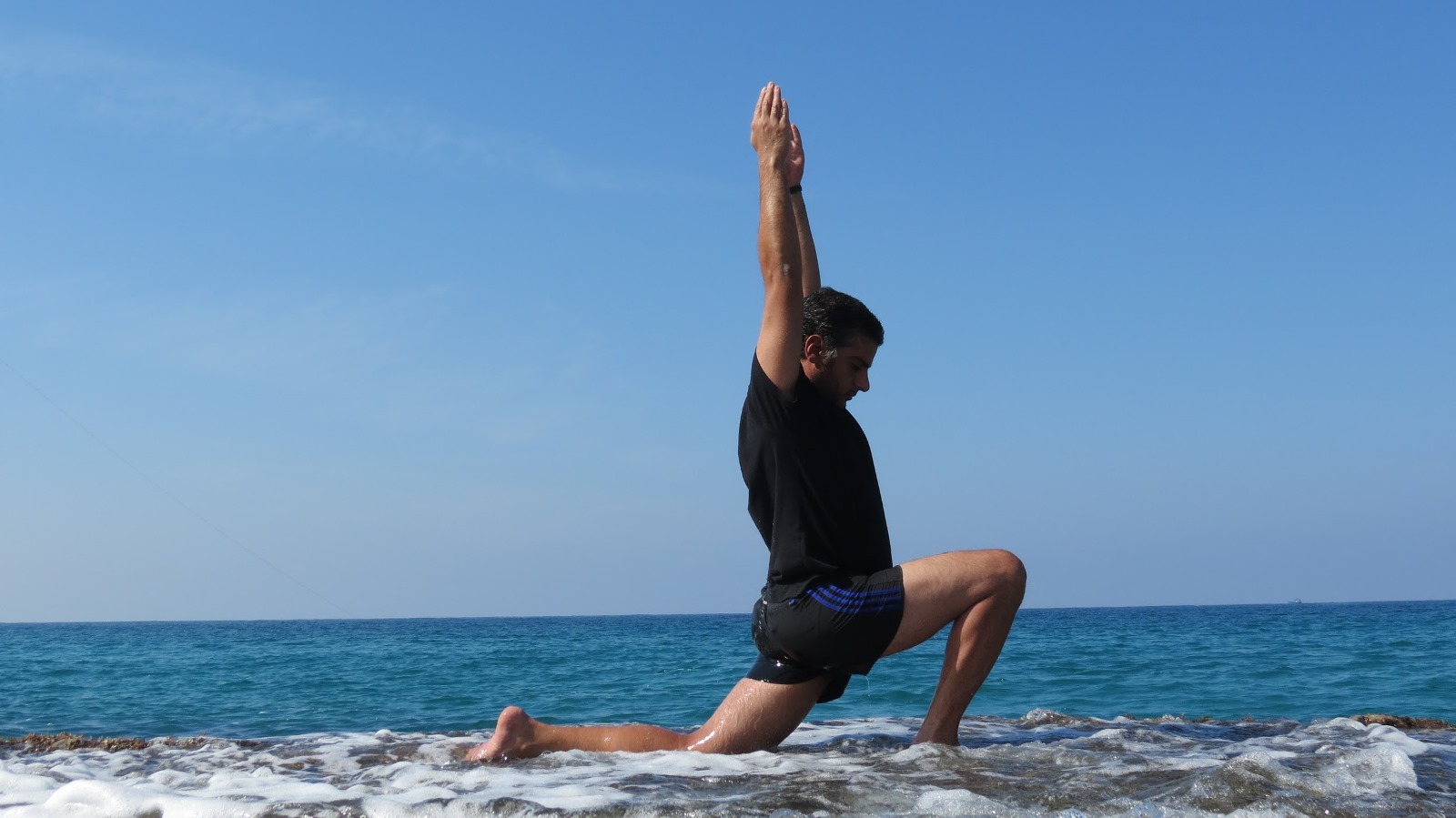
Many Israelis embrace spiritual practices such as Kundalini yoga, which according to certified yoga instructor Ourit Ben-Haim “gives you a fresh perspective of all spiritual paths.”
Some yoga practices incorporate Judaic wisdom and philosophy, such as Dekelyah Winer’s Alef Bet Stretch, Ophanim Alef Bet Yoga pioneered by Zvi Zavidowsky, and Otiyot Hayyot (Living Letters) founded by Yehudit Goldfarb in 1979 as a hybrid of tai chi, yoga and Kabbalah based on the block letters of the Hebrew alphabet.
“The simple movement patterns of Otiyot Hayyot promote relaxation, integration and renewed vitality as they reveal the spiritual light and life force within each letter,” Goldfarb says.
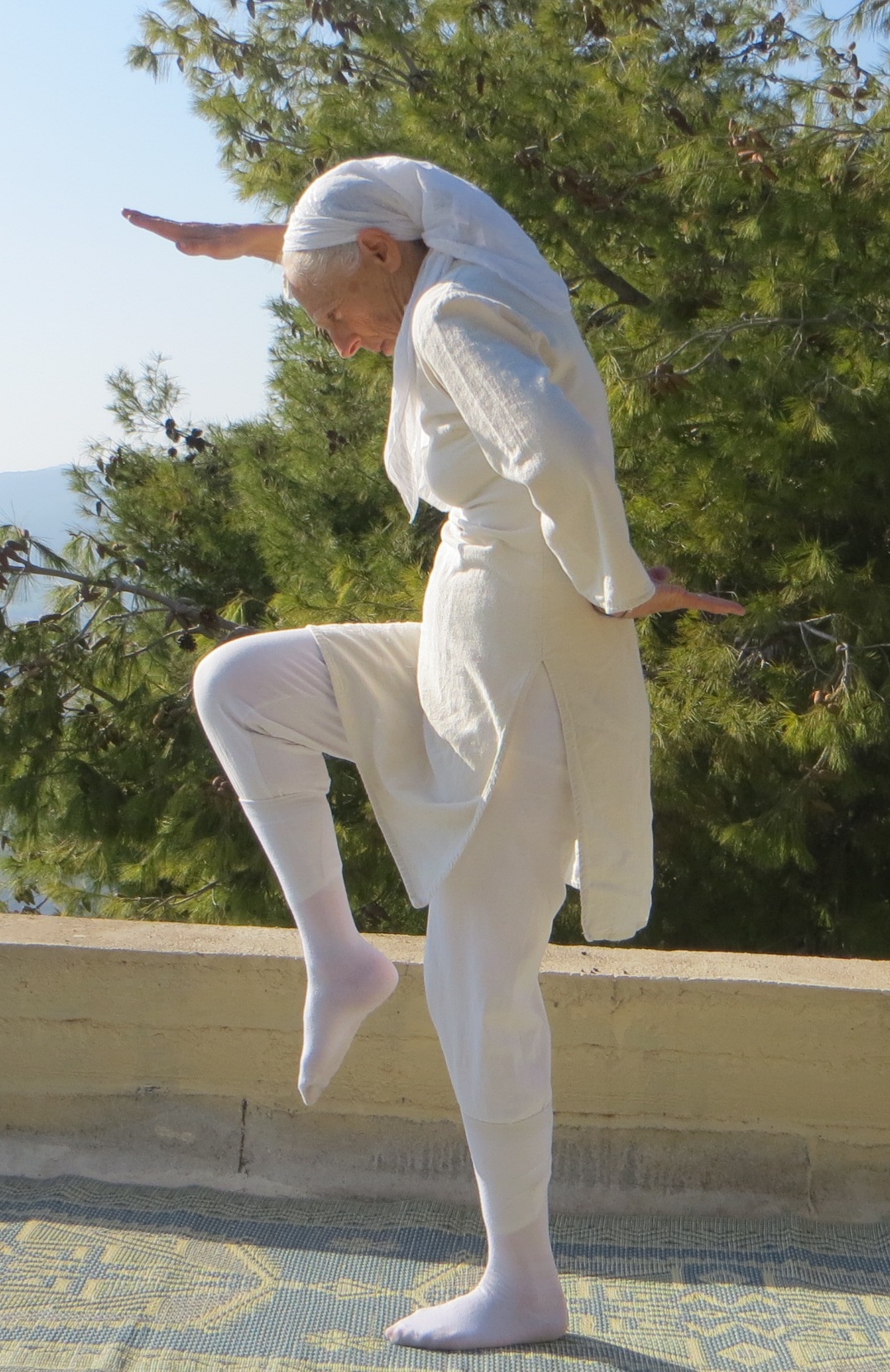
Rachel Solberg, 90, a yoga pioneer in Israel since 1957, says many Israeli yogis choose to end their practice with the chanting of “shalom,” a modification of the yoga chant “om.”
This adaptation, she says, was used and encouraged by Swami Venkatesananda in one of his first visits to Israel as a way to honor the Hebrew tradition and infuse the Sanskrit with added local meaning.
Solberg founded the Israeli Yoga Teachers’ Association, which now boasts several hundred registered instructors, as well as the yoga program at the Wingate Institute for Physical Education and Sports in Netanya. She still teaches weekly classes at Wingate and in Ramat Aviv.
Acroyoga
The Israeli scene also is rich with spin-offs and fusions such as yoga dance, yoga barre and acroyoga.
Acroyoga is a partner-based practice that combines yogic breathing, mindfulness and postures with elementary acrobatic technique. Last year, more than 150 practitioners came together for a synchronized acroyoga flashmob ahead of the Purim holiday.
Yanai Levor, a founder of the Israel acroyoga community, organizes the annual Israel Acrobatics Convention featuring yoga, acrobatics, hoop dance and more. This event has become the third largest acroyoga gathering in the world.
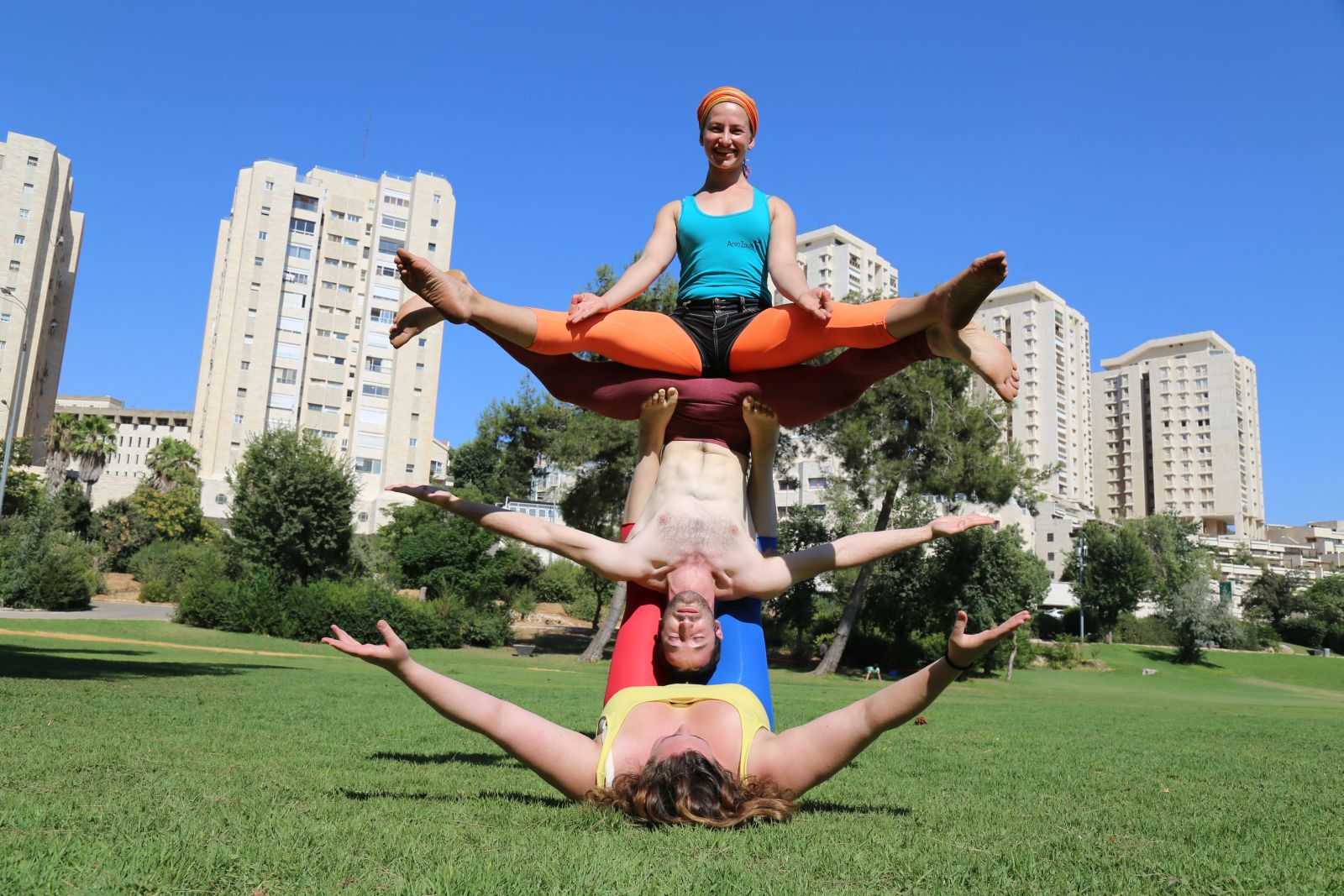
Perhaps due to the intensity of the Israeli personality, Israelis tend to push themselves to achieve the most challenging poses possible. Almost every dynamic yoga class in Israel will end with a series of inverted postures including back bridges, headstands, handstands and forearm stands. The highest number of Israeli yoga teachers instruct in Ashtanga, or power yoga.
At the same time, Vijnana yoga (a therapeutic and gentle yoga form) was founded in Israel by Orit Sen Gupta and marks one of many Israeli contributions to the global yoga community.
Ingrid Aria of the Yoga HomeSchool sees room for Israeli yogis to learn from immigrants, who often incorporate music and inspirational quotes into their classes, and vice versa.
“If we can blend the full Israeli system with the Western openness for lightness and play, a new approach to yoga may be born out of Israel,” she predicts.
Solberg thinks yoga could even provide a key to peace. “Have patience, don’t take your yoga too fast and it may just bring you to a place of happiness where you no longer have any enemies at all.”
Ayo Oppenheimer-Abitbol is a certified yoga instructor teaching Vinyasa yoga and acroyoga in Israel. She leads classes out of her home studio (StudioAYO) in Jerusalem.
